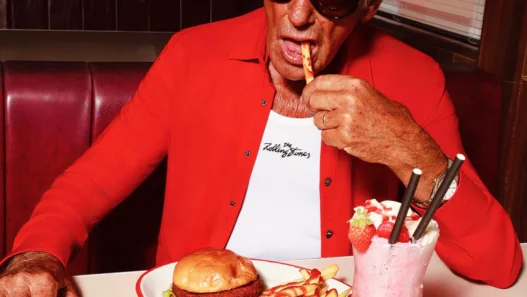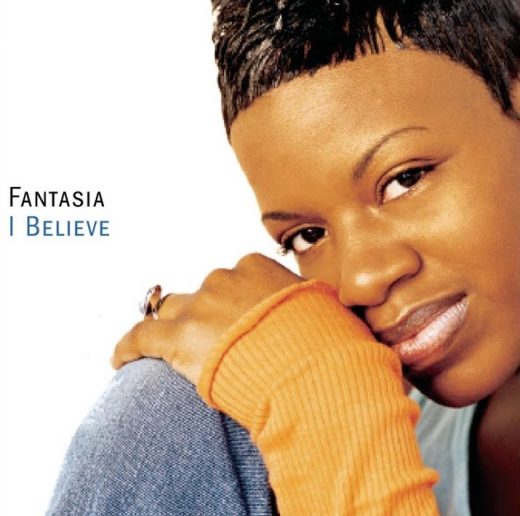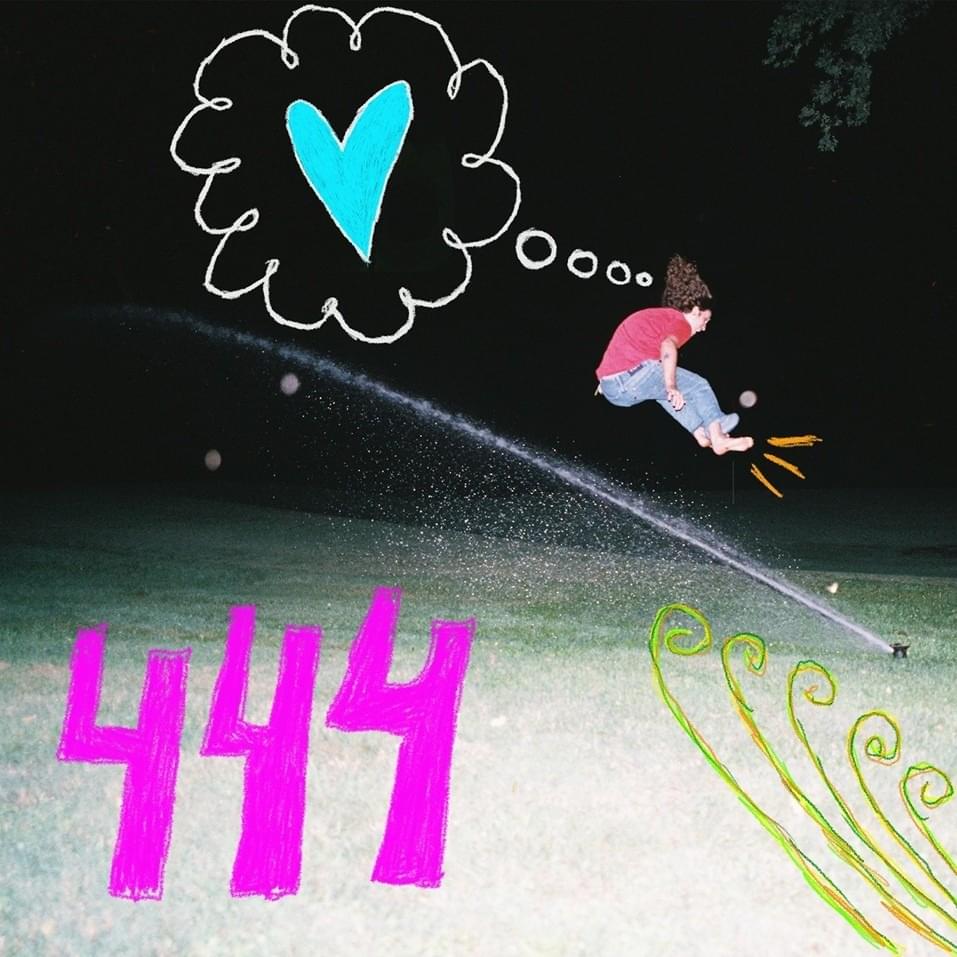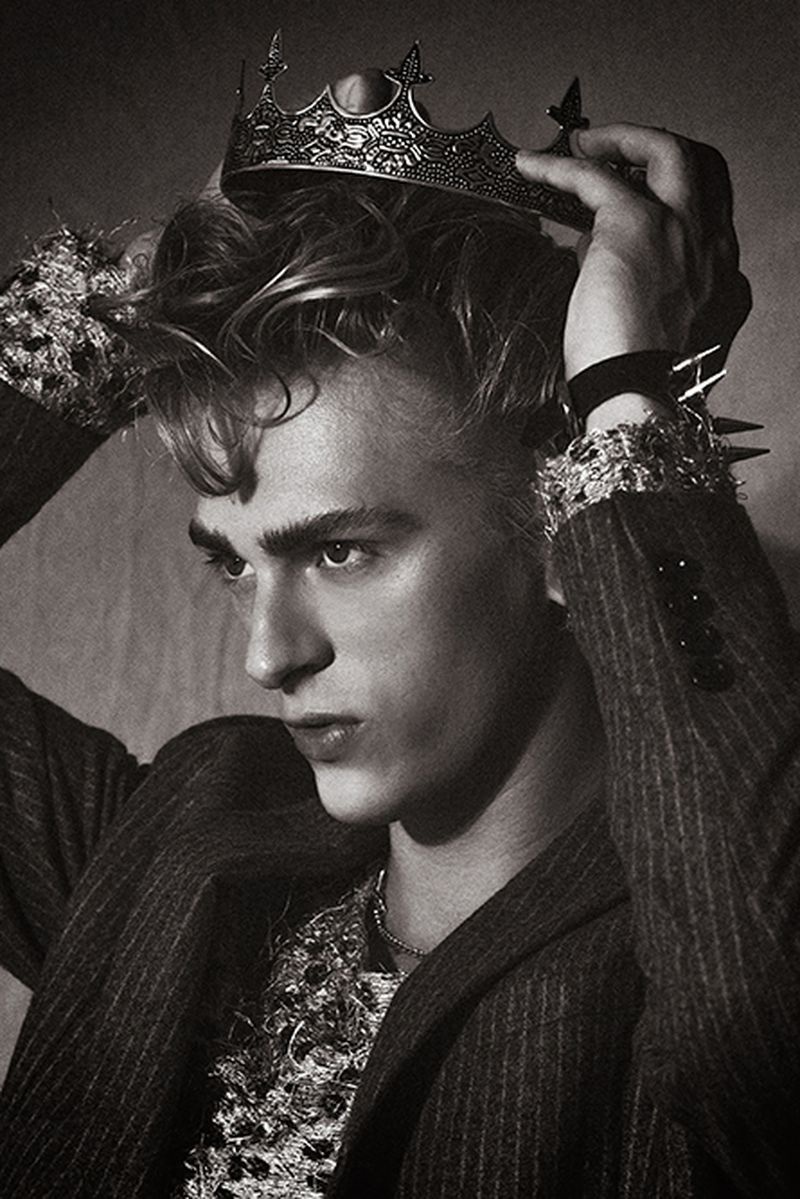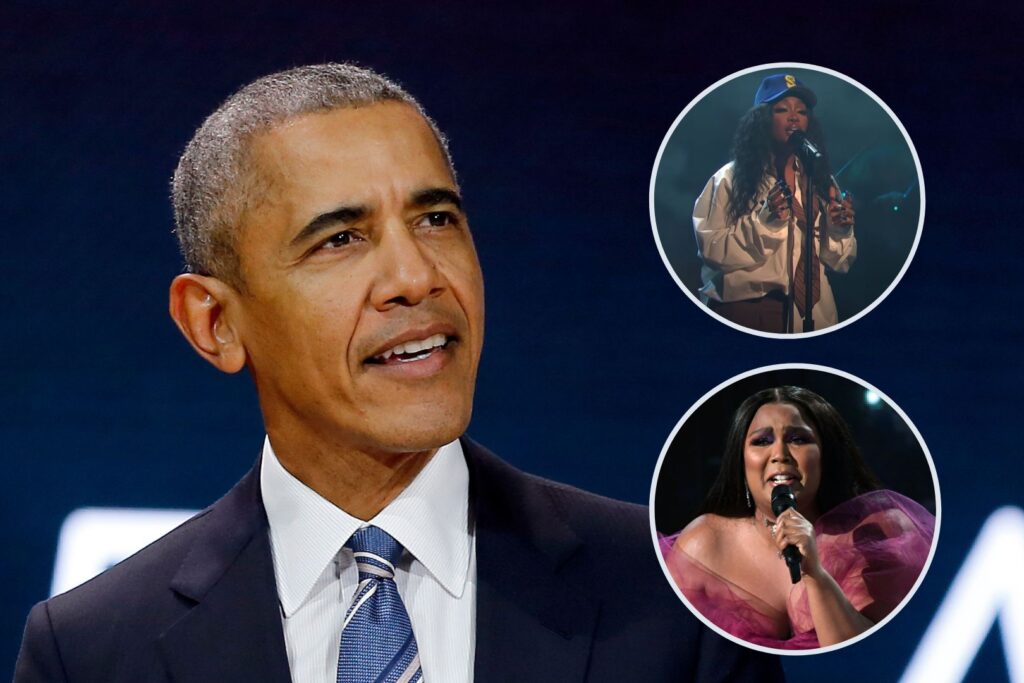According to one of our sources:
Over the entire course of the 2004 calendar year, virtually everyone who reached #1 on the Hot 100 was Black. I’m pretty sure it’s the only time that’s ever happened. White artists were selling records in 2004; Eminem and Kenny Chesney and Gretchen Wilson and Evanescence all moved millions. But the pop charts were the domain of Black artists from the worlds of rap and R&B, two genres that white artists had never managed to fully colonize.
Not coincidentally, 2004 is one of the all-time great pop-music years. Usher was at his absolute peak. Rap was evolving and branching off into new directions at a wild rate. Producers were figuring out how to make weird sounds appeal to vast audiences. Pop radio was open to Black voices, and the stars of the day didn’t have to water their styles down to appease program directors. Even American Idol didn’t fuck things up too badly. That year, Idol voters anointed a singer who could hang with the R&B stars of the day — one who made a home in R&B and who’s still beloved in the genre today.
By its third season, American Idol had established itself as a ratings juggernaut and a pop-music anomaly. Once a year, American Idol would send a wan and bloodless coronation song to #1 on the Hot 100. The song wouldn’t have much to do with the pop mainstream of its day, and it wouldn’t work in conversation with the other hits of its era. It would reach #1 on the Hot 100 on the strength of sheer singles sales, and then it would fade back into obscurity. That’s basically what happened with Fantasia’s “I Believe,” the big American Idol song of 2004. But Fantasia happens to be a truly great singer, and “I Believe” happens to be a perfectly solid song. “I Believe” can’t really compete with the run of insanely huge Usher hits that it briefly interrupted, but its presence in the record books is not an embarrassment. I can’t say the same about too many of the American Idol songs that reached #1.
As an institution, American Idol worked as a strange bastion of adult contemporary in an era when that sort of music had mostly faded out of the pop charts. Kelly Clarkson, the show’s first winner, eventually carved out a lane as a centrist pop star — partly by fighting with her record label and partly by submitting to label demands at the right moments. She’s the exception. Other than Clarkson, the biggest names to come out of American Idol, Fantasia included, have been hugely compelling TV performers who went on to become niche figures. Even Carrie Underwood, a singer who will eventually appear in this column, found a huge audience but rarely ventured outside the realm of country music. Fantasia followed the same path that Carrie Underwood did, but Fantasia always knew that her lane was within R&B. Fantasia just happened to win the show during a year when R&B was absolutely running the pop charts.
Fantasia Barrino was deeply immersed in R&B from the moment that she was born. Two of Fantasia’s cousins are K-Ci and JoJo, two singers who have already been in this column. Two of her uncles were the Barrino Brothers, a ’70s R&B group who were signed to Invictus Records, the label that the songwriting team of Holland-Dozier-Holland formed after parting ways with Motown. But despite her proximity to stardom, Fantasia lived a difficult life before finding fame on American Idol.
Fantasia grew up in High Point, North Carolina, and she started singing when she was a little kid. (Duran Duran’s “The Reflex” was the #1 song in America when Fantasia was born.) When she was in ninth grade, Fantasia was raped by a classmate, and she dropped out of high school soon afterward. When she was 17, Fantasia became a single mother. After she got famous, Fantasia revealed that she’d been functionally illiterate for her whole life; even when she was on Idol, she had to memorize songs without being able to read their lyrics. When she auditioned for American Idol, Fantasia was just 19, but she’d already been though a lifetime’s worth of hardship.
Fantasia could always sing. That much was obvious from the jump. She’s got a distinct voice, a classic smoky Southern rasp with serious firepower behind it. After her Idol audition, where she sang “Killing Me Softly With His Song” and “Proud Mary,” Simon Cowell immediately proclaimed her “one of the best we’ve ever had.” Simon never varied from that verdict, and why should he? He was right.
There was a whole lot of talent on that season of American Idol, and Fantasia quickly became known as one of that season’s “Three Divas.” The three standout singers that year were all young Black women with huge R&B-trained voices. They weren’t really anything alike, but those surface similarities were enough that Fantasia was constantly mentioned in the same breath as the other two, LaToya London and future EGOT winner Jennifer Hudson. (Jennifer Hudson’s highest-charting single, 2008’s “Spotlight,” peaked at #24.) In the middle of the season, all three singers were in the bottom three, and Jennifer Hudson was eliminated. In a press conference soon afterwards, Elton John, one of that season’s guest mentors, said that the voting was “incredibly racist,” and it’s hard to argue with him on that, even if things ultimately turned out OK for Hudson.
Even up against someone like Jennifer Hudson, Fantasia was utterly unstoppable on Idol. She brought the struggle, and she sang every song, in every genre, as if it meant the absolute world to her. If you watched that season, you knew enough of Fantasia’s story, and you felt invested in that story. Even if you didn’t know that whole deal, though, she always sang like someone without a regulator switch. She lived out out entire internal dramas in front of the camera. Most famously, Fantasia’s raw, theatrical reading of the George Gershwin standard “Summertime” was a truly great cultural moment — high art that somehow snuck its way through the built-in filters of reality television. She felt her song. (I’m still trying to get my head around the inclusion of Quentin Tarantino on the judges’ table, telling Fantasia to be funkier.)
In the American Idol finale, Fantasia was pitted against the Alabama-born teenager Diana DeGarmo. (DeGarmo’s highest-charting single, 2004’s “Dreams,” peaked at #14.) It was not a competition. Even DeGarmo knew that it was Fantasia’s night. Both Fantasia and DeGarmo were given the same coronation song. “I Believe,” like Kelly Clarkson’s “A Moment Like This” or Clay Aiken’s “This Is The Night,” is a vague uplifting ballad about taking your passion and making it happen. Both singers sang “I Believe” on the finale. Diana DeGarmo’s version was just fine, but she never stood a chance.
“I Believe” is not, in itself, a remotely interesting song. It’s a swollen quasi-gospel thing with lyrics that are just clichés piled on clichés: rainbows and pots of gold, shooting stars, dreams becoming reality. “When you look out in the distance, you see it never was that far. Heaven knows your existence and leads you to be everything you are.” Sure. Fine. A song like that means nothing to me, but it clearly meant something to Fantasia.
Fantasia brought huge force to her version of “I Believe,” and she made it resonate. The definitive version of “I Believe” isn’t the single that Fantasia released after winning the show. It was the fire-eyed version that she sang live on TV. She meant every word of that version. I would’ve probably rated this song a point or two higher if the live rendition was the one that actually came out as a single.
“I Believe” came with its own meta-story. When he introduced Diana DeGarmo’s version, Ryan Seacrest pointed out that the song had been written by Tamyra Gray, a former American Idol contestant. Gray was on the first season of Idol, and she finished in fourth place. Later, Gray appeared on winner Kelly Clarkson’s debut album debut album Thankful and had a guest-starring arc on Boston Public. Gray didn’t win her season, but anyone who’s ever watched a reality competition show knows what it’s like to feel a lingering affection for someone who didn’t win.
Seacrest didn’t mention the other two people who co-wrote “I Believe.” Sam Watters has actually been in this column a couple of times as a member of Color Me Badd. (He was the guy who looked like Kenny G.) In 1996, while working on the Color Me Badd album Now And Forever, Watters got to know Louis Biancaniello, a musician who came up working with the star producer Narada Michael Walden. (Walden and former American Idol judge Randy Jackson are now the rhythm section of Journey.) Watters and Biancaniello formed a production and songwriting duo. They’re jointly responsible for Jessica Simpson’s biggest hit, the 1999 ballad “I Wanna Love You Forever.” (“I Wanna Love You Forever” peaked at #3. It’s a 4.) They also worked on Tamyra Gray’s 2004 debut album The Dreamer.
So “I Believe” was written by a former American Idol contestant, an ex-member of Color Me Badd, and a guy who played keyboard on some Tevin Campbell records. I love that. That’s awesome. Even better: Tamyra Gray and Sam Watters fell in love and got married in 2006. They’re still together today. I wish “I Believe” was as interesting as that whole random-ass saga. Watters and Biancaniello produced “I Believe” together, and Gray and Watters sang backup vocals on it. I wish I could say that Watters brought that old Color Me Badd swagger to the track, but maybe he decided that the old Color Me Badd swagger didn’t really belong on “I Believe.”
“I Believe” was actually the highest-selling single of 2004, which didn’t mean that much in an era when nobody really bought singles. “I Believe” was packaged with Fantasia’s versions of “Summertime” and Aretha Franklin’s “Chain Of Fools,” and it sold more than 100,000 copies in its first week — enough to end Usher’s record-breaking 19-week run at #1. The next week, Usher’s “Burn” returned to #1, and “I Believe” fell out of the top 10 after just two weeks.
Fantasia hasn’t returned to the top 10 since “I Believe.” Her debut album Free Yourself, which came out later in 2004, was a sharp contemporary R&B album with production from people like Missy Elliott, Jermaine Dupri, and Rodney Jerkins. The Danish duo Soulshock & Karlin produced lead single “Truth Is,” which sampled the Isley Brothers and peaked at #21. It’s still Fantasia’s second-biggest Hot 100 hit.
Fantasia’s voice sounds great on record, but it doesn’t have the same intense drama of her Idol performances. Recording studios aren’t set up for a singer like Fantasia to bring that fire every time. Free Yourself went platinum, and Fantasia remained a star in the R&B world for years afterwards. “When I See U,” the lead single from her 2006 self-titled album, spent nine weeks at #1 on Billboard’s R&B chart, but it only reached #32 on the Hot 100. (Sam Watters and Biancaniello got writing credits on that one, too.) Fantasia hasn’t been on the Hot 100 since 2013, when her Missy Elliott/Kelly Rowland collab “Without Me” peaked at #74.
Even if she hasn’t been a consistent pop-chart presence since “I Believe,” Fantasia has still had a tremendously successful career. She’s still a huge live draw among Black audiences, and she’s still known to bring the same kind of raw and emotive power that makes Mary J. Blige such a moving performer. In 2007, Fantasia also made her Broadway debut, playing Celie in the musical version of The Color Purple. Over the years, Fantasia has played that same role in different productions of The Color Purple, and she also returned to Broadway in the music After Midnight in 2013.
Next year, Warner Bros. is scheduled to release a movie version of the Color Purple musical, and Fantasia is set to star alongside Taraji P. Henson, Colman Domingo, and Oscar winners Louis Gossett Jr., H.E.R., and Jon Batiste. (Ciara, another star of the forthcoming Color Purple musical, will soon appear in this column.) There’s been talk of turning the Color Purple musical into a movie for years now, but it looks like it’s finally happening now. So maybe Jennifer Hudson won’t be the only Oscar winner from that American Idol season. Even if the movie goes nowhere, though, I’m still rooting for Fantasia.
GRADE: 5/10 The Number Ones: Fantasia’s “I Believe” (stereogum.com)





